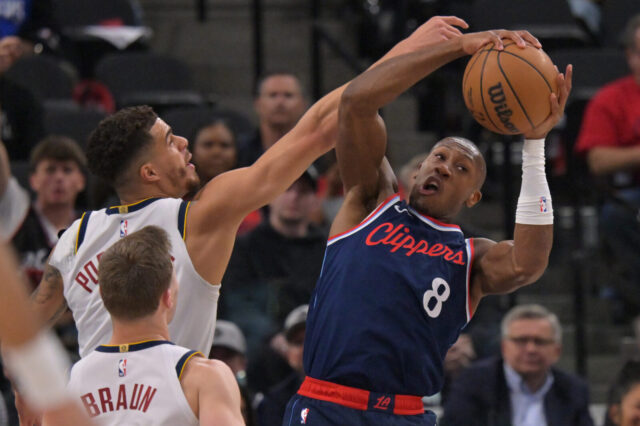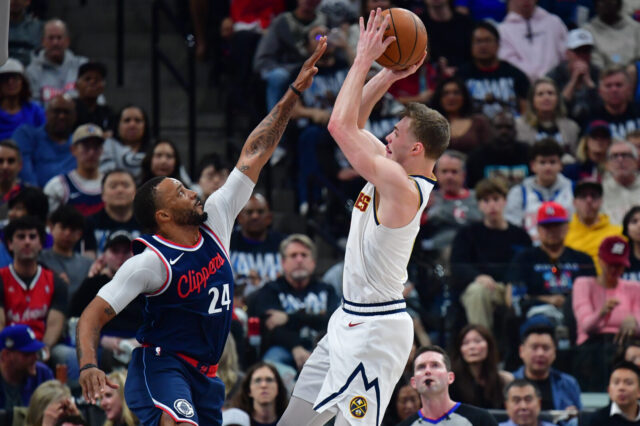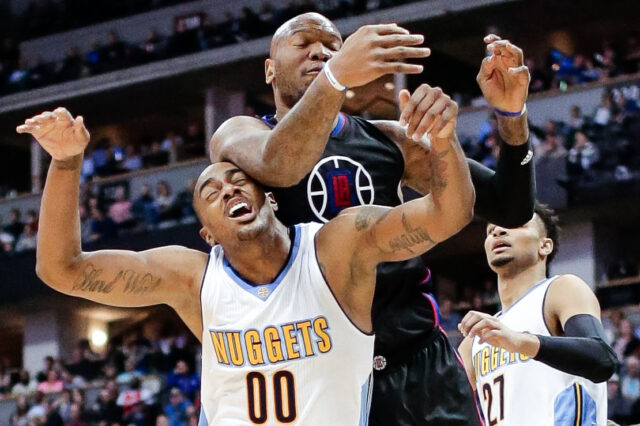This will surprise many of you but Keon Clark was one of my favorite Nuggets growing up. He played just two-and-a-half seasons in Denver including a lockout shortened rookie season. He put up unremarkable stats during that time but as a middle schooler, all I cared about was that he’d dunk on people pretty regularly. He was 6’11” and just 220 pounds, thinner than Kevin Durant with skinny legs that he’d refer to as “rocket boosters.”
Clark played just six seasons in the NBA before he fell out of the league, in large part due to off-court struggles that included drugs and alcohol. He’d later admit that he “never played a game sober” throughout his NBA career. After retirement from the NBA, Clark’s alcohol addiction continued to send him on a downward spiral. He had multiple run-ins with the law including a DUI, several traffic violations, and possession of a firearm without proper registration. He hit rock bottom in 2013 when, on parole and under the influence of alcohol and anti-depressants, he backed into a light-pole and totaled his car.
He was then sentenced to eight years in prison, served just four before getting out on good behavior earlier this year. According to Clark, his four years in prison were the best thing that happened to him. He was recently the subject of an excellent story by The News Gazette and had this to say of his stay in jail:
"I don't wish prison on anybody," said Clark, 42. "But I see my time away, my sabbatical, as the education of me. It was time well spent."
"When I went to prison, alcohol wasn't on my mind. I was on my mind.”
In the article, Clark explains how he tried to rebuild himself from the ground up while in prison, learning Yoga and practicing early every morning in his cell. He took up public speaking and studied and performed in front of his peers and in front of professionals who would come to the prison and offer feedback. He also began reading philosophers like Friedrich Nietzsche, self-help experts like Daniel Goleman, and alternative medicine professionals like Deepak Chopra.
Clark talks about the struggle of becoming rich and famous quickly and how his alcohol addiction, which he first developed as a teenager, created a barrier for him to communicate with teammates and influencers in his life. He also talks about the pressure that the media puts on young athletes, something that I think about a lot as a relatively new credentialed journalist.
It’s a really great story. Prison rehabilitation stories are always read with skepticism and this one is probably no different. Clark himself even admits as much, but he’s adamant that his four years behind bars were life-changing. He even explains how he eschewed bail because he knew he was hitting rock bottom.
Here’s to hoping for a new, second life for Clark.


